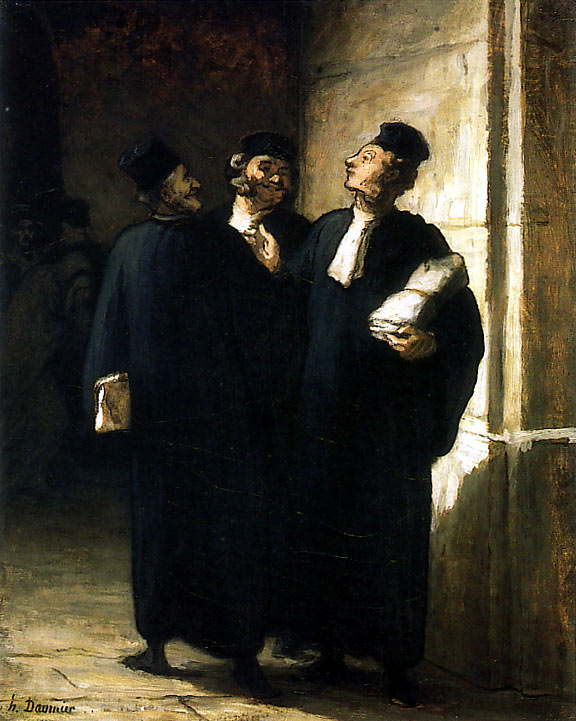« Lawyers, Voting and Voters' Rights | Main | Government by Gaels? »
October 02, 2008
"Slick Answers to Lazy Interrogatories."

Color me silly, but I love and respect written discovery during the pretrial process in American federal courts. Years ago, a fed-up U.S. district court judge, throwing up his hands during arguments by lawyers on a motion to compel discovery responses, referred to answers to interrogatories as "slick lawyer answers to lazy lawyer questions". I feel his pain.
Years ago a new second year associate who worked at our firm (after one year at another firm) complained that we were putting "too much thought" into a set of interrogatories under Rule 33, Fed. R. Civ. P. Our new hire patiently explained to me that interrogatories and other written discovery were in fact "simply a way for lawyers to bill time so they could make money, and nothing more." He was adamant about it, too. Nice guy, and I liked him--I always try to take his cab when I'm in Pittsburgh.
But complex and hard-fought civil cases really do turn about 90 per cent on the quality of the discovery questions and requests, including deposition questions, and the responses to them. And well-thought out and strategically-timed written discovery is the best way there is to prepare great depositions--and get ready for trial.
Posted by JD Hull at October 2, 2008 02:45 PM
Comments
You are absolutely right.
Also, I tend to think that "slick lawyer answers" to written discovery usually cause them more problems than good at trial.
Posted by: Chuck Newton at October 1, 2008 03:31 PM
Moe remains highly skeptical, especially given that few, if any, federal judges will order a defendant to answer any written question, w/o regard to how well framed, yet alone a well stated deposition question.
Post one of your great sets of interrogatories, RFAs, or requests for documents and let us judge for ourselves.
Moe's two cents is that trials are won by lawyers with a legal theory and factual theory that they are permitted to present to the jury sans interference by a biased judge. Such rarely rarely happens in today's federal courts.
99% of litigation, today, is appealing the bias of conservative judicial appointees, no more, no less.
Posted by: Moe Levine at October 1, 2008 08:41 PM
Post a comment
Thanks for signing in, . Now you can comment. (sign out)
(If you haven't left a comment here before, you may need to be approved by the site owner before your comment will appear. Until then, it won't appear on the entry. Thanks for waiting.)